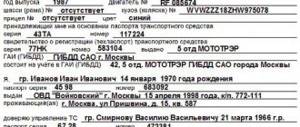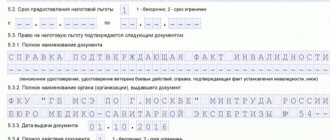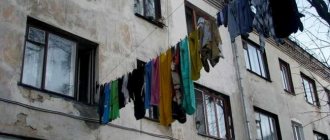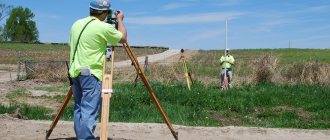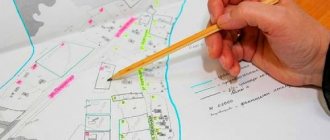What it is?
Privatization is a process as a result of which property is transferred to another type of ownership. Two parties take part in this process - the citizen and the state.
Federal Law No. 178 of December 21, 2001 clearly regulates the issues of privatization of state and municipal property.
It is important to know that the privatization procedure involves obtaining a garden plot for free, if this does not contradict the norms of the legislation of the Russian Federation.
Basically, citizens who own dacha plots have in their hands a document - a booklet confirming their participation in a particular cooperative (membership), but this fact does not give them the right of ownership of this property.
Real estate is a special object, and ownership of it must be formalized in a special way with an official package of relevant documents. Otherwise, the owner of such property will not have the authority to dispose of it in full, namely: sell, inherit or donate.
Privatization makes it possible to remove all restrictions by registering property rights (your powers) in an authorized register. The privatization process can only be based on a specific transaction, which is confirmed by the necessary documents. In 2020, the procedure was significantly simplified, but the duration of these changes is limited to 2020.
Features of registration in Rosreestr
After receiving a positive decision and the privatization act, it is necessary to complete the procedure. Without this, ownership rights are not granted. The process is carried out in the territorial department of Rosreestr. This can be done in person, through a representative, by mail or online.
The following is provided:
- an application, the form of which is issued upon application;
- passport;
- privatization act;
- cadastral passport;
- power of attorney and passport of the representative, if it is not possible to apply in person;
- receipt of payment of state duty.
For registration of ownership of a house, 2,000 rubles are paid. It is important to pay the receipt before submitting your documents as they will not be processed without it. The review period is 5 working days. and when applying through the MFC it increases to 7-9 days. This time is necessary to send documents, since they are only accepted here.
Is it required?
Privatization is not mandatory. Whether to privatize a plot or not is a matter for each person to decide for themselves. The question here is different. Do you need a garden plot that in the future a person will not be able to sell, donate or inherit to his relatives?
If there are any doubts related to privatization, then you can re-register membership in the cooperative to relatives, who will later decide on the advisability of privatization.
Process Benefits
Few people plan to get property, since the dacha in most cases is not used for living during the cold season. It is grown in the summer and harvested in the fall. It is impossible to obtain permanent or temporary registration in such a premises, because it is not residential. But design has a number of advantages:
- full disposal of real estate - transfer under a gift agreement, sale, use as collateral;
- join a gardening or gardening cooperative;
- receive compensation from the state if lands are taken out of circulation.
There are pros and cons of privatizing a country house on privatized land. You should learn about these characteristics before directly registering the object. The main advantages of privatizing a country house on privatized land are as follows:
- it becomes possible to easily dispose of this property at your own discretion, for example, a dacha can be sold, leased to other persons or given as a gift;
- after the death of a citizen, this property is inherited by his successors;
- It is allowed to use the dacha to transfer it to a bank or other organization as collateral.
But before starting the process, you should make sure that the existing advantages are more significant than the disadvantages.
Advantages and disadvantages
The advantages of privatization include:
- full disposal and management of the land plot;
- the possibility of building and constructing a house on your own land. You can find out whether privatization of a country house is necessary if you own the land here.
The disadvantages include:
- payment of land tax (a significant drawback tied to the cadastral value);
- a simplified form of privatization is valid for a certain period (until 2020), and, most likely, it will become impossible to privatize a garden plot later.
What to do if there are no papers for a plot of land?
If for various reasons there is no documentation for the land, then initially you will have to privatize the site, and then register the building. If the land is privatized, but the documents are lost for various reasons, then it is necessary to restore them in the BTI or other government organizations.
Without competent privatization of land, it will not be possible to register an object. Often, citizens immediately submit documents for registration of both the site and the buildings built on it.
What will happen if you don't privatize?
Without registration of ownership of the plot, it remains the property of the local administration, and in fact, a person can only use it (plant, dig, etc.).
Everyone knows that privatizing a garden plot means making it your own and managing it at your own discretion (sell, rent out, donate, etc.).
If the garden plot of land is not privatized, then there is a danger of losing it. How? If the local administration requires, according to the territorial development plan, the territory on which the land is located, then the person will lose it free of charge.
How much does the procedure cost?
At the moment, the procedure is free of charge. This is stated in the amendments to the Land Code dated March 1, 2017, which state that persons who are members of cooperatives and partnership organizations have the right to privatize a land plot free of charge until December 31, 2020.
For citizens who do not fall under the “dacha amnesty”, privatization will be a paid service. Firstly, you will need to completely buy the land, and secondly, you will need to pay separately for the services of a cadastral engineer (the amount will be calculated based on the size of the plot and the complexity of the work performed). Thirdly, when submitting documents, a state fee of 200 rubles is always paid.
Dacha amnesty extended until 2021: how to register a house
The “dacha amnesty,” which is quite relevant in all regions of Russia, has already been extended three times after the immediate adoption of the law. And, despite various obstacles and disagreements, this law still works today, enjoying considerable popularity.
In fact, the federal law, adopted back in 2006, has a rather long official name (now Federal Law No. 20-FZ of February 28, 2015 “On Amendments to Certain Legislative Acts of the Russian Federation”), and is only colloquially called nothing less than a dacha amnesty.
Where to start designing?
First you need to understand what can be registered as your property and what cannot. Today, the concept of “dacha amnesty” has been extended to those individuals who have long been members of a garden society (cooperative), but did not have the opportunity to re-register the garden plot as private property.
The classification of land plots is based on the following characteristics:
territorial location;- availability of real estate in this territory;
- number of real estate;
- types of ownership.
also possible to privatize any part of the given property, but for this the building must comply with the norms of the legislation of the Russian Federation.
Citizens who have expressed a desire to privatize are also classified into the following categories:
- Shareholders.
- Owners of a summer cottage.
- Citizens who are one of the owners of this plot.
What documents are required?
- First of all, a statement must be written.
- Passport with cadastral number.
- A valid passport of the Russian Federation (if the operation is performed through another authorized person - a representative, then his valid passport is required, as well as the corresponding power of attorney).
- Documents for various benefits.
- If desired, an extract from the Unified State Register can be presented.
- Documents confirming a citizen's right to property.
- If the person is officially married, the consent (permission) of the second spouse will be required.
Attention! To carry out the procedure, a citizen needs to pay a state fee (in the amount of 200 rubles), and also prepare a conclusion (decision) of the local administration.
More details about the documents that will be required for the privatization of a summer cottage can be found here.
Free privatization of land plots: features and conditions of the procedure
- application (there is no established form of the document, but a sample, as a rule, can be obtained from the circulation authority);
- applicant's passport (copy);
- a document on the basis of which he owns the site (for example, it could be a lease agreement or an act of the administration of a locality on the allocation of land);
- title papers for buildings located on the territory of the allotment (if any);
- cadastral passport (provided only if the site is included in the state cadastre);
- an extract from the Unified State Register, which has replaced the cadastral passport since 2020 (it is worth considering that its validity period is 1 month from the date of receipt).
This procedure is mandatory and is carried out in a special body - Rosreestr. To do this, the landowner must prepare and submit a certain package of documents to the registration authority and be sure to pay the state fee.
Competently drafting an application
The header of the application indicates to whom this application is addressed, for example:
Head of AdministrationMunicipal district Tverskoy district of the Komi Republic I. A. Gorshkov
- Next, the name of the document (application) is written in the middle of the sheet.
- The “body” of the application indicates a request for permission to privatize the dacha plot and the address of the plot. Next is the date and personal signature of the applicant.
Example:
Statement
I ask you to allow me to privatize the dacha plot, which is located at:__________________________________________________________________________
Date and signature.
You will find all the details about where to start registering land ownership, what documents you will need for this and how to correctly draw up an application in a separate material.
Privatization concept
The privatization of a country house on privatized land is represented by a procedure that ensures the transfer of the object into the ownership of a citizen.
Most often this term is used when decorating apartments, houses or small buildings. Since a citizen is the owner of the land, they usually talk about registering a dacha, and not about its privatization. Registration of an object allows not only to enter into various transactions with it, but also to use this property as collateral. After the process, an obligation arises to pay property tax for this object.
Step-by-step instruction
To the dacha
- Drawing up an application and submitting it to the authorized organization (administration bodies, land committee, etc.) It is also possible to submit documents through multifunctional centers.
The application is filled out in a free, free form and contains the following information:- applicant's passport details;
TIN of the applicant;
- the area where the house is located.
- The application is submitted along with the package of documents listed above. After submitting the application, you just have to wait for the decision (approximately 14-15 working days).
- Next, we contact Rosreestr to register the property. When drawing up a plan, the services of an engineer will be required. After the work is completed, a cadastral passport is issued.
You will learn about how to privatize a country house if you own the land in another article.
Sample with ground formation
We contact the local administration and draw up an application requesting privatization. We also present a document confirming the right to own the land plot.- We expect a decision after checking all documents (about 14-15 working days).
- If a positive decision is received, we boldly go and draw up a cadastral passport, which will record all the information on your garden plot.
Reference. Rosreestr will help you register your property, which is where you should go after everything.
Legal advice on dacha privatization issues
But what about registration within the actual boundaries?
State fraud? If the site has not previously taken into account the catastrophic plan, should it be in Rosreestr? Where can I find out if a land inventory has been carried out? If previously Rosreestr was satisfied that the plots were not registered, then why now should I personally pay for the fact that the plot was not included in the database as previously registered. And this is 4 acres near the “devil in the middle of nowhere” with a dilapidated barn. How to privatize a dacha? The local government body first requires catastrophe registration, and only then, perhaps, if its left leg so desires, since the laws are not written for them, it will give it into ownership. How can municipal property be registered for catastrophe?
We recommend reading: Rights of an interested party in civil proceedings
Reasons for refusal
Reasons why you might get a negative answer:
- the garden plot has been removed from circulation;
- suspicions about the owner's rights;
- location of the land plot on public territory.
If a person is not a citizen of the Russian Federation, then he will be denied privatization, since he does not have our citizenship.
For more accurate information related to the documentation and the procedure for its preparation for privatization, it is best to contact competent lawyers in order to avoid mistakes or delay the process. Because the procedure and documents may have some differences based on the specific situation.
Land surveying
The land surveying procedure is described in detail in Federal Law No. 221 dated July 24, 2007.
Today, if a person wants to fully manage a plot of land (for example, sell it), then the cadastral number in the passport will not be enough. A land surveying process will be mandatory, which clearly defines the boundaries of the site, in order to avoid future problems and conflicts with neighbors living nearby. After all, it is the neighbors who can claim their rights to own one or another piece of land.
5 years after the first survey, if you need to sell the land plot again, you will have to carry out the procedure again. Because the first survey will no longer be valid.
Important! It is necessary to keep the entire land surveying procedure under your strict control. Often, unscrupulous land surveyors make gross and serious mistakes, performing their work disgustingly.
In this regard, a person can be issued a non-existent plot, and the existing one can be given to other (third parties) people.
The main stages are:
- collection of information;
- conversation with neighbors and agreement;
- behavior of shooting with specialized equipment;
- drawing up and recording a land surveying plan;
- collection and preparation of relevant documents.
To summarize, it can be noted that the process of registering a garden plot as your own is very simple and minimally expensive. However, this order will be valid until 2020, and what will happen next is unknown to anyone. Therefore, if there is a possibility of privatization now, then it is better to carry out this procedure in the near future.
Registration of a country house
The mechanism for simplified registration of ownership of land and constructed real estate, approved by Federal Law No. 93 of 2006, was called the “dacha amnesty.”
Despite the planned completion of privatization in 2016, the pace of re-registration was insufficient, as a result of which a significant proportion of plots and houses remained unprivatized. This became the reason for revising the terms of the amnesty. The dacha amnesty also applies to home decoration. Unlike a residential building built on a plot allocated for individual housing construction, the construction and commissioning of a country house does not require a permit.
In this regard, according to a simplified scheme, an event can be carried out on the basis of:
- certificates of title to the plot (in the absence of information about it in the Unified State Register and the absence of registration before that);
- a document confirming the right of lifelong ownership;
- a document certifying the right to use the land indefinitely;
- declarations for construction.
The declaration for real estate is filled out personally by the applicant. To correctly fill out the document yourself, you can use the sample published on the Rosreestr website. You can familiarize yourself with the rules for filling out the declaration at the nearest Rosreestr office.
A special feature of the procedure for registering ownership of a country house is that Rosreestr is not required to verify the data provided by the owner of the building. The simplified registration procedure does not require specialists to travel.
